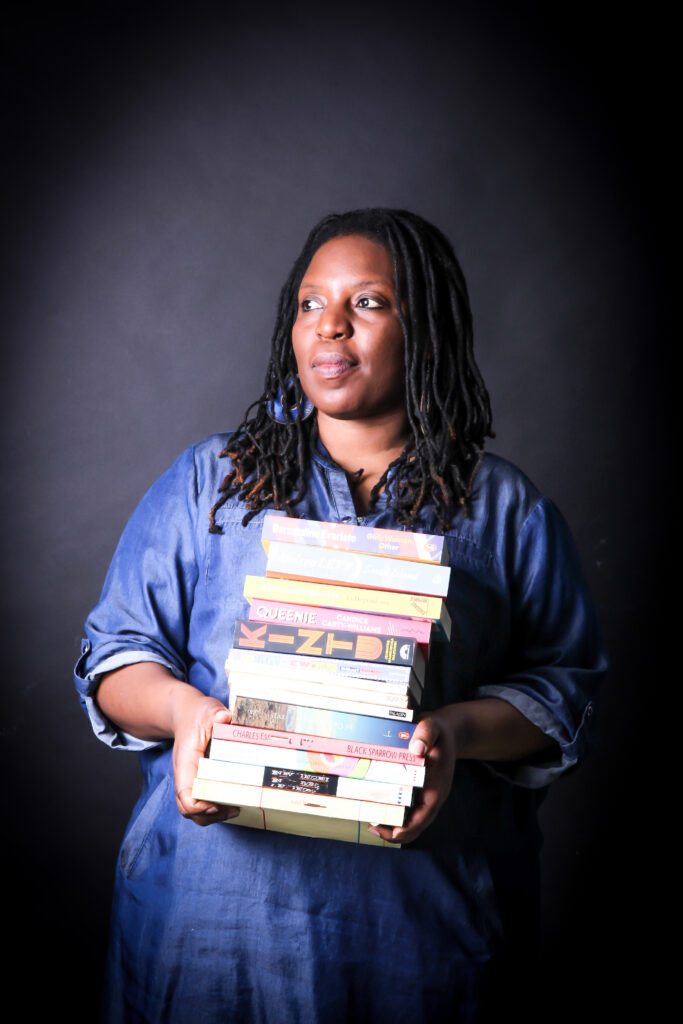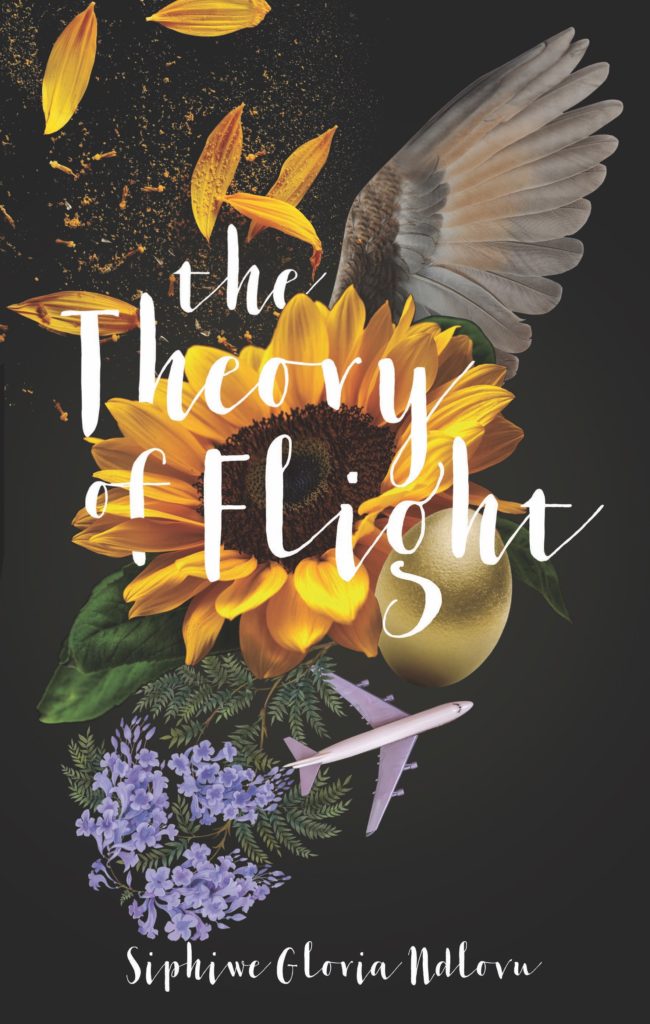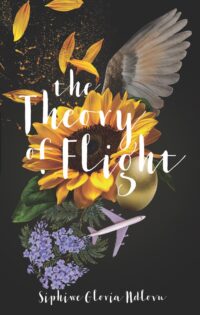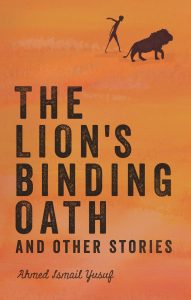This month, we were proud to release Siphiwe Gloria Ndlovu’s award-winning novel The Theory of Flight in North America. When it was released in South Africa, the novel was awarded the Barry Ronge Fiction Prize. We are pleased to give even more readers the opportunity to read this beautiful book.
This sweeping epic explores decades of family and national history through the lives of a group of interconnected characters. Through the country remains unnamed in the novel, its history closely mirrors that of Zimbabwe, and the plot centers on Genie whose family and friends struggle to come to terms with her impending death. This novel sketches, through the lives of a few families and the fate of a single patch of ground, a nation’s history – from colonial occupation through the freedom struggle, to the devastation wrought by the sojas, the HIV virus, and The Man Himself. At turns mysterious and magical, but always honest, The Theory of Flight explores the many ways we lose those we love before they die.
The novel has earned praise from Bustle, Full Stop Magazine, and Publishers Weekly where it earned a starred review. Tsitsi Dangarembga, author of Nervous Conditions and the Booker-Prize-shortlisted novel, This Mournable Body also named the book one of her ten favorites in this list at Vulture magazine. (And you can read an essay at LitHub on how Zimbabwean authors like Tsitsi have inspired Siphiwe’s work.)
We chatted with Siphiwe about her work, the difficulties of defining a book like The Theory of Flight, and how fiction helps us “maneuver the often rocky and complicated terrains of the past and present.”

Can you tell us a bit about your background? Was writing always something you wanted to do?
I started reading at a very young age. Somewhere between the ages of three and five, I read my grandparents’ gorgeously illustrated copy of the Grimm’s fairy tales from cover to cover. When I was not reading, I was in fields of sunflowers and maize, letting my imagination run riot. My grandmother was a supremely gifted oral storyteller and filled most of my bedtime hours with vivid traditional fables.
Because I was surrounded by the art of storytelling day and night, quite naturally, once I could successfully hold a pencil between my fingers, I started drawing stories all over the pantry walls. I was such a menace that for my tenth birthday my mother bought me the largest scrapbook that she could find, and that was when I graduated to drawing stick figures with dialogue bubbles. I didn’t know it at the time, but this skill would come in handy years later when I had to do storyboards as a film student. In my teen years, I eschewed the stick figures and started writing skeletal stories that I intended to develop at a later date.
Stories were such an integral part of me and I obviously had a healthy imagination so it always seemed quite right to me that a part of my life would be spent writing stories. In high school, the stories that I wrote as part of composition exercises would often receive praise from the teachers, which gave me confidence that I could indeed tell a story. But, to be honest, I think because it was such a natural part of me I didn’t take writing seriously until I was in undergrad and a professor read one of my stories to the class and pointed out the “voice” of the piece. I didn’t even know that I wrote in a particular way so that was the moment I was like, okay, something else is obviously going on here, something that is a part of me, but that is also beyond me… bigger than me. It was a necessarily humbling moment.
Your journey to Catalyst Press started a long time ago. You and Catalyst Press founder Jessica Powers go back a long way. Can you talk a bit about how you met?
I met Jessica Powers during my first week at Stanford University. It was during an African History class and I remember Jess coming into the room on crutches. Obviously everyone was curious and so she had no choice but to tell us that she recently had been hit by a car. Talk about the ultimate ice breaker.
It was a very small class and by the end of Jess’s story I think we all felt like we were in something together – we were offering to carry her book bag etc., a few weeks or months later I offered to help her with her Zulu. I was a terrible Zulu tutor, but luckily Jess never held that against me. When Jess left Stanford after her second year, to say goodbye we went for a long meandering walk through campus, which was when we learnt of each other’s love for writing. I guess that walk was the real beginning of this journey. Of course back then Catalyst Press and The Theory of Flight were in futures we were dreaming of vaguely and secretly – we had no idea what was to come.
There are so many threads and characters and histories entwined in The Theory of Flight. How did you get to know these characters, their voices, their actions so that they felt fully developed over the course of the novel?
I spent ten years listening to the characters in The Theory of Flight and getting to understand their personalities and histories. For about eight of those ten years I would write bits of the story here and there. Ten years is a long time to get to know anyone. At first, the characters were very patient with me, revealing themselves and the story in manageable chunks. When I procrastinated writing my PhD dissertation, I think they panicked, thinking I might give the novel the same treatment and so they became more insistent so that by the end of 2015, I had no choice but to complete the first draft of the story.
Because I had written the story over many years and because it was my first novel, while I had a firm grasp on characterization and the general story, the plot was all over the place and that was something that I had to iron out through various iterations so that the characters could develop throughout the course of the novel. I think it helped tremendously that I knew exactly how the story would end – what that last image would be – so that while I had many different beginnings, the story was always heading towards the same ending.
The Theory of Flight is just the first book in this particular family’s saga. Did you always intend on creating a multi-novel story, or did you just find there was more you wanted to say about these characters?
This is definitely one of those happy accidents that sometimes happen in life. I started writing a story that I put aside in order to write The Theory of Flight first so as I was writing Theory I knew that there was this other story coming. I also knew that there was a character, Vida de Villiers, who existed in both stories, so I knew that there was that connection. At the same time, I had a character, Emil Coetzee, for whom I was trying to sketch the outline of a story and while I was doing so he somehow found his way into The Theory of Flight. Emil Coetzee is now the protagonist of my second novel The History of Man so those two stories are definitely interconnected.
Initially, these connections were not as pronounced or clear, but in the process of writing The Theory of Flight I became so invested in the characters and their stories that I wanted to see where they went to after or where they had been before the moment captured in Theory. As a huge Robert Altman fan, I am so very happy with the way things have turned out. I will also say that it is my intention to make the series become more of a “family saga” as it progresses — and I will end on that somewhat mysterious and hopefully tantalizing note.
Since the novel incorporates so much history, can you tell us about your research process for it?
My graduate studies both at Ohio University and Stanford University involved research into African history and, especially for my dissertation, Rhodesian/Zimbabwean history in particular, so when I started writing The Theory of Flight I just drew from what I had learnt over the years. It was rather nice and freeing to be creative with a history that I had engaged with critically and intellectually for a long time.

The Theory of Flight covers many current/ongoing societal issues, but examined through the lives of these fictional characters. What do you see as the value of using fiction to tell complex historical narratives?
I find history, or rather, History, to be a highly contested entity between the state and the people that it governs. I think the state always wants to have the definitive narrative about what happened in the past because that is the best way to control the present and influence the future. Usually what we receive as history in this way is uncomplicated and self-serving (often merely making sense of how the state came to rule the way that it does) and this narrative of the past is very, very dangerous because it is also very limiting and limited. Therefore, I strongly believe that there should always be alternatives to national and statist histories – academic historians provide such alternatives as do writers of fiction, historical or otherwise. It is important that people have different entry points to their pasts because this empowers them to imagine and determine their futures. Fictional characters, because of the access we as readers have to their interiority, can help us maneuver the often rocky and complicated terrains of the past and present with a sense of immediacy and urgency.
You’ve chosen to leave the country in which this story unfolds unnamed in your novel. Can you tell us why you left it unnamed?
The country that my novels are set in has had four name changes throughout its modern history. Since, in some sense, I write historical fiction, it could become rather messy to have to contend with these changes in the series of interconnected novels I intend to write. In addition, I think the colonial and postcolonial names of the country have a lot of weight and baggage attached to them that I don’t really want readers to bring to the text. I want us all to start thinking beyond our received perceptions when it comes to this southern African country. Moreover, not naming the country allows the story to travel and transport itself so that while it is very much a story about a particular place, it is also, at the same time, a story that can take place anywhere, which, I hope, helps us focus more on what the story is about and not so much where it is set. The things that happen within the story – war, violence, pandemics, love, loss etc., – are things that are held in common by all nations of the world so, for me, the where is not as important as the how, when and why.
This novel has often been considered “magical realism,” but that’s not a title you’re completely comfortable with. Where do you think your novel fits when we talk about categories?
I think all I will say about this is that I understand the practical need for labels and categories. Maneuvering through a library or a bookstore would be an absolute nightmare without things being classified and ordered in certain ways. That said, categories can be limiting, especially when, as humans, we tend to add value judgements to certain categories. I think most books are doing more than one thing so to only highlight one aspect of what they are doing is to not tell their story fully.
Can you tell us about your writing process? Is there anything you always do before starting new work?
To date I have written four manuscripts and all of them have been written under very different conditions. It took me eight to ten years to write The Theory of Flight and four to six months to write my second novel, The History of Man. Although the circumstances and the routines are never the same there are a few constants – I do research and take notes or I take notes from research that I have already done, I write a plot outline and do character sketches, I jot down whatever lines of dialogue or description come to me and then I start writing the manuscript out by hand in a notebook. Since I write the initial manuscript by hand first I tend to have my headphones on when I start typing it up. I find that listening to music allows me to focus on the story and “hear” it better. Because my writing is usually focused on particular historical moments, I like to listen to music from the eras that I am writing about. To this end, I have very long playlists that are categorized by decade. These soundtracks allow me to appreciate the “texture” of the worlds my characters inhabit.
What are you reading now? Who are some authors you’ve found inspiration/influence from?
Every year I try to read a few books from the shortlists of various literary awards and prizes. This year, because of Covid, this has been a challenge. Happily, I got my hands on two titles from this year’s Booker Prize shortlist – Tsitsi Dangarembga’s This Mournable Body and Maaza Mengiste’s The Shadow King – and I plan to read them in the coming week. Last year I read Bernadine Evaristo’s Girl, Woman, Other and I am yet to come down from that literary high.
This was a writing intensive year for me and since I do not like to read other people’s work while I write, I could not do as much reading as I would have liked, but I did read Sinan Antoon’s fabulous The Book of Collateral Damage. While I tend to steer clear of physical books while I am writing, I cannot do without stories altogether and so audiobooks come to the rescue quite a bit and I usually listen (often again) to books that I get inspiration from – Chimamanda Ngozi Adichie’s Half of a Yellow Sun, Julian Barnes’ The Sense of an Ending, Jackie Kay’s Trumpet, Andrea Levy’s Small Island, Penelope Lively’s Moon Tiger, Arundhati Roy’s The God of Small Things, Gabriel Garcia Marquez’s One Hundred Years of Solitude, Toni Morrison’s Beloved and Alice Walker’s The Color Purple– all these books do wonderful things with histories both personal and political.
What’s next for you?
As I mentioned before The Theory of Flight is part of an interconnected series of novels. The second in that series, The History of Man, was recently published by Penguin Random House, South Africa and will be published by Catalyst Press in the near future. I have manuscripts for two other books in the series that I will continue to work on and polish. I loved the characters in The Theory of Flight so much that I never wanted to leave their story world, so I feel lucky, privileged and blessed to be able to continue relationships and stories over the years to come.
Order The Theory of Flight:



